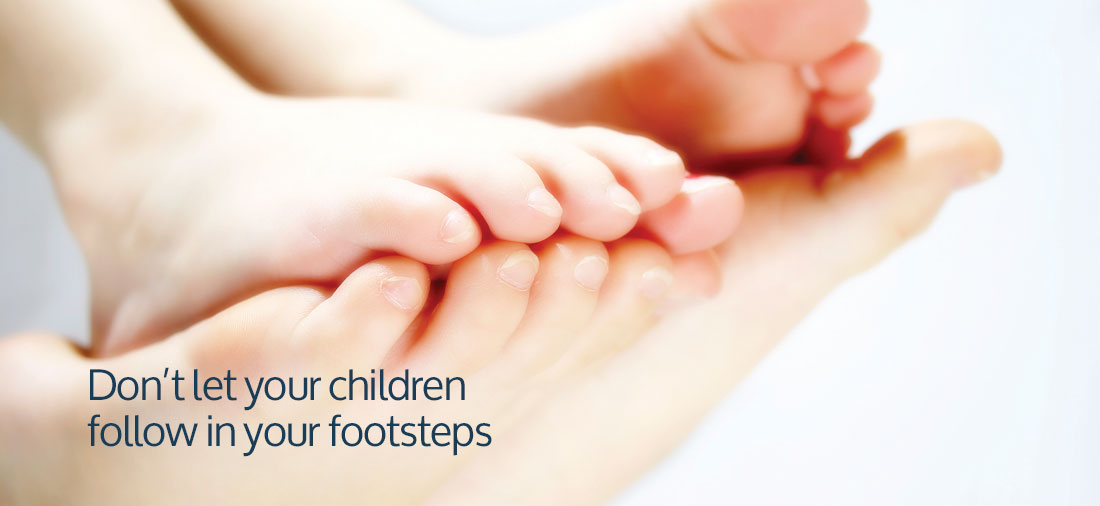Top 10 Tips for Diabetic Foot Care
Caring for your feet when you have diabetes – Top 10 tips:
1. Check your feet DAILY: Nerve damage (peripheral neuropathy) can make it hard to feel if there are any sores or cracks in your feet. You should check your feet each day with a mirror for any changes in colour, sores or dry/cracked skin areas. These could eventually become a wound.
2. Wear correct fitting shoes: Ill-fitting shoes (too big or too small) can cause for blisters, callous (hard skin) and cracked heels to arise.
3. Check your shoes DAILY: Patients with peripheral neuropathy (a well-known complication of diabetes) are more likely to miss trauma resulting from a dangerous foreign object in your shoes which can lead to infection.
4. Keep your feet moisturised: Choose a thick and creamy moisturising cream, a higher urea content is a great place start when choosing. Keeping your feet hydrated helps avoid those painful cracked heels and areas of callus building up.
5. Dry your feet well: Being sure to keep your feet dry is super important when you’re diabetic, as fungal infections thrive in dark damp places and take a greater time to heal.
6. Be cautions when getting a pedicure: YES, you can still get a pedicure, however pick a place with a very high level of hygiene practices in place. It is important to avoid any type of infection which will be slower to heal and has a greater chance of spreading due to diabetes weakening one’s immune system.
7. Take caution when cutting own nails and never self-treat corns or callus: If you are capable of providing your own nail care, be sure to never cut down the sides and always straight across the nail.
8. Don’t use your feet to test hot surfaces: Peripheral neuropathy can mean it can be tricky to tell if bath water is too hot. Testing it with your foot could result in scalding your skin. Burns and blisters are open portals for infections. To avoid this, use your elbow to check the temperature.
9. DON’T go BAREFOOT inside or out: Protecting your feet from small cuts and scrapes or trauma from splinters, glass or a misplaced pin is really important. If you have reduced feeling, you might not notice the damage until the areas become infected.
10. Seek care before concerns arise: Come in regularly for general care and diabetic foot checks. If you start to notice any changes in your feet, whether it be increased funny feelings, changes in colours, painful ingrown nails or callus areas, let us know. See us or your doctor to be sure you are getting to the bottom of these causes before something like a foot wound occurs.








